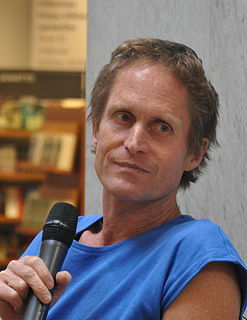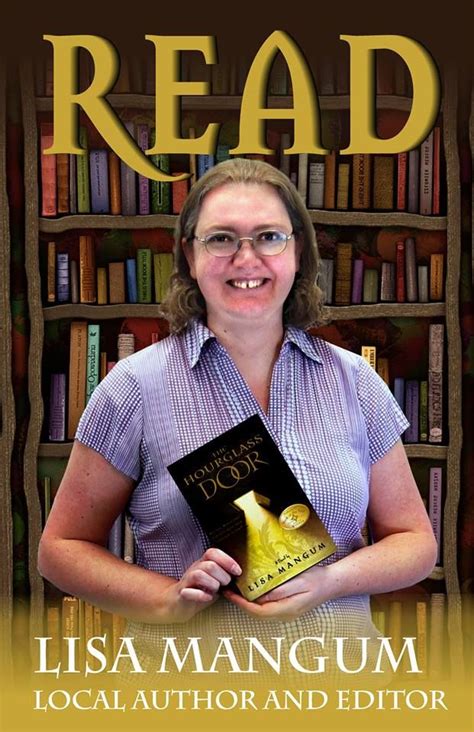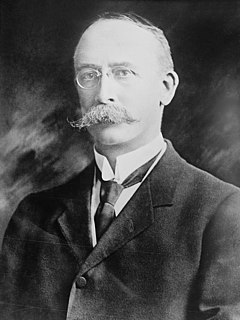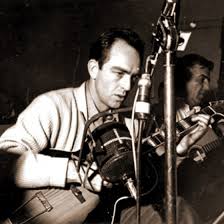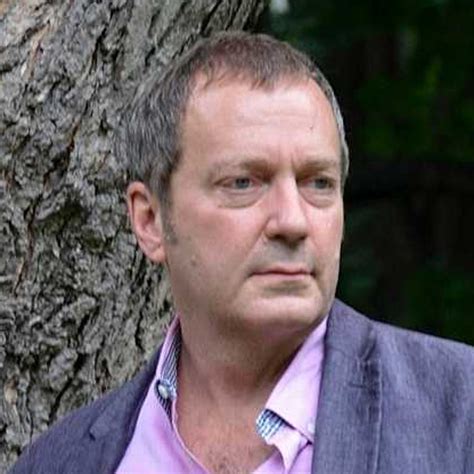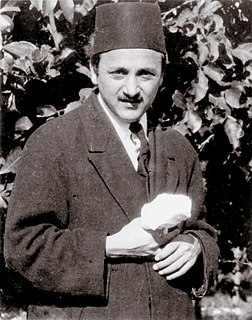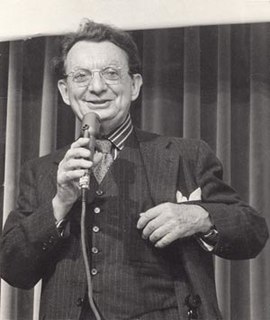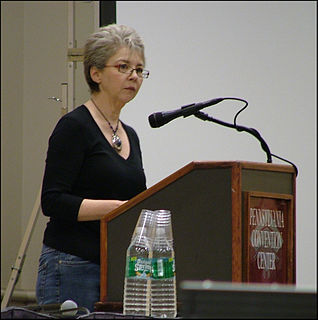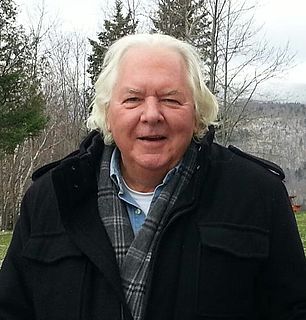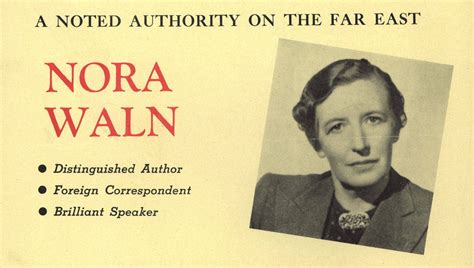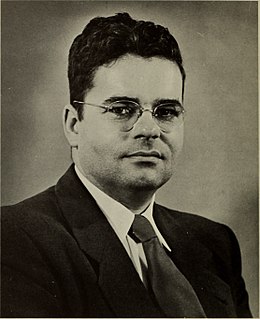Top 907 Rite Of Passage Quotes & Sayings - Page 14
Explore popular Rite Of Passage quotes.
Last updated on April 21, 2025.
When my mother didn't come back I realized that any moment could be the last. Nothing in life should simply be a passage from one place to another. Each walk should be taken as if it is the only thing you have left. You can demand something like this of yourself as an unattainable ideal. After that, you have to remind yourself about it every time you're sloppy about something. For me that means 250 times a day.
But if you miss it, you will next be confronted with the angry deities, ... threatening you and barring your passage ... because you turned a deaf ear to the saving truths of religion. All these forms are strange to you, ... they terrify you, ... and yet it is you who have created them. Do not give in to your fright, ... flee them not! They are but ... the contents of your own mind... If at this point you should manage to understand that, ... and you will find yourself in a paradise among the angels.
to look back on one's life is to experience the capriciousness of memory. ... the past is not static. It can be relived only in memory, and memory is a device for forgetting as well as remembering. It, too, is not immutable. It rediscovers, reinvents, reorganizes. Like a passage of prose it can be revised and repunctuated. To that extent, every autobiography is a work of fiction and every work of fiction an autobiography.
The river is now. This moment. This breath between us. The space between your heartbeats. The moment before you blink. The instant a thought flashes through your mind. It is everything that is around us. Life. Energy. Flowing, endlessly flowing, carrying you from then...to now...to tomorrow. Listen: you can hear the music of it. Of the passage of time.
Let us not try to understand music with our mind. Let us not even try to feel it with our heart. Let us simply and spontaneously allow the music-bird to fly in our heart-sky. While flying, it will unconditionally reveal to us what it has and what it is. What it has, is Immortality's message. What it is, is Eternity's passage.
There's a certain pressure you put on yourself to use the comics page to full advantage that can focus your mind to a pinpoint, and when the juices are flowing, that's incredibly exciting. When you've managed to fit a complex set of actions or a complicated emotional passage into a single page there's the sense of satisfaction that I suspect a sculptor gets from chipping away at a piece of stone and ending up with a fully-realized work of art.
Living men are bound by time... Thus, their lives have an urgency. This gives them ambition. Makes them choose those things that are most important, cling more tightly to that which they hold dear. Their lives have seasons, and rites of passage, and consequences. And ultimately, an end. But what of a life with no urgency? What then of ambition? What then of love?
Many of the rites of passage, those rituals of growing up found in our society, are in the form of such comic, practical joking affairs--which we ignore in the belief that they possess no deeper significance. Yet it is precisely in their being regarded as unimportant that they take on importance. For in them we ritualize and dramatize attitudes which contradict and often embarrass the sacred values which we proclaim through our solemn ceremonies and rituals of nationhood.
At a turbulent public meeting once I lost my temper and said some harsh and sarcastic things. The proposal I was supporting was promptly defeated. My father who was there, said nothing, but that night, on my pillow I found a marked passage from Aristotle: Anybody can become angry--that is easy, but to be angry with the right person and to the right degree and at the right time and for the right purpose, and in the right way -- that is not within everybody's power and is not easy.
Baptism into this Church is a serious thing. It represents a covenant made with our Heavenly Father. It is much more than a right of passage. It is a gateway to a new manner of living, and a new road on which to walk that leads to immortality and eternal life. It was never intended as a dead end. It was intended to open a glorious and wonderful way of life to all who would walk in obedience to the commandments of God.
There is a fragrance in the air, a certain passage of a song, an old photograph falling out from the pages of a book, the sound of somebody's voice in the hall that makes your heart leap and fills your eyes with tears. Who can say when or how it will be that something easters up out of the dimness to remind us of a time before we were born and after we will die?
Learning to play the guitar is a combination of mental and motor skill acquisition. And to develop motor skill, repetition is essential... Whenever musicians have trouble executing a passage, they generally tend to blame themselves for not having enough talent. Actually, all that's wrong is they don't know where their fingers are supposed to go...you should learn the piece in your head before you play it. And when you do play it, play it so slow that there's no possibility of making a mistake.
Thus, if there is anyone who is confident that he can advise me as to the best advantage of the state in this campaign which I am about to conduct, let him not refuse his services to the state, but come with me into Macedonia. I will furnish him with his sea-passage, with a horse, a tent, and even travel-funds. If anyone is reluctant to do this and prefers the leisure of the city to the hardships of campaigning, let him not steer the ship from on shore.
I believe I'm a caterpillar buried deep down under the ground. The entire earth is above me, crushing me and I begin to bore through the soil, making a passage to the surface so that I can penetrate the crust and issue into the light. It's hard work boring through the entire earth, but I'm able to be patient because I have a strong premonition that as soon as I do issue into the light I shall become a butterfly.
You walk for days among trees and among stones. Rarely does the eye light on a thing, and then only when it has recognized that thing as the sign of another thing: a print in the sand indicates the tiger's passage; a marsh announces a vein of water; the hibiscus flower, the end of winter. All the rest is silent and interchangeable; trees and stones are only what they are.
A Concordance of Leaves is an epic poem of the indomitable yet fragile human spirit. Philip Metres brings Palestine and Palestinians into English with rare luminosity. One feels echoes of Oppen's succinct tenderness in the depiction of the numerous characters of this work. Without other, there is no self. And that other is the stranger who must be loved. Concordance is, after all, a wedding poem-leaves and pages in search of a certain passage toward harmony.
The honor that we pay to the Son of God, as well as that which we render to God the Father, consists of an upright course of life. This is plainly taught us by the passage, "You that boast of the Law, through breaking the Law dishonor God."...For if he who transgresses the law dishonors God by his transgression,...it is evident that he who keeps the law honors God. So the worshipper of God is he whose life is regulated by the principles and teachings of the Divine Word
It had been a good day, all things considered. I had managed rather well on my own. I opened Grandfather's Bible. This is what it would be like when I had my own shop, or when I traveled abroad. I would always read before sleeping. One day, I'd be so rich I would have a library full of novel to choose from. But I would always end the evening with a Bible passage.
What a joy it is to read a book that shocks one into remembering just how high one's literary standards should be.... a tour de force by one of England's best novelists.... Atonement is a spectacular book; as good a novel - and more satisfying... - than anything McEwan has written....sublimely written narrative.... The Dunkirk passage is a stupendous piece of writing, a set piece that could easily stand on its own.
But at the same time, in reality, what a difference there is between the world today, and what it used to be! And with the passage of more time, some two or three hundred years, say, people will look back at our own times with horror, or with sneering laughter, because all of our present day life will appear so clumsy, and burdensome, extraordinarily inept and strange. Yes, certainly, what a life it will be then, what a life!
Cassandra wondered at the mind's cruel ability to toss up flecks of the past. Why, as she neared her life's end, her grandmother's head should ring with the voices of people long since gone. Was it always this way? Did those with passage booked on death's silent ship always scan the dock for faces of the long-departed?
And what fastens attention, in the intercourse of life, like any passage betraying affection between two parties? Perhaps we never saw them before, and never shall meet them again. But we see them exchange a glance, or betray a deep emotion, and we are no longer strangers. We understand them, and take the warmest interest in the development of the romance. All mankind love a lover.
He wanted nothing, for the time being, except to understand .... Without advice, assistance or plan, he began reading an incongruous assortment of books; he would find some passage which he could not understand in one book, and he would get another on that subject .... There was no order in his reading; but there was order in what remained of it in his mind.
Regarding the passage on p. 163 of the 'Gleanings': The creatures which Bahá'u'lláh states to be found on every planet cannot be considered to be necessarily similar or different from human beings on this earth. Bahá'u'lláh does not specifically state whether such creatures are like or unlike us. He simply refers to the fact that there are creatures on every planet. It remains for science to discover one day the exact nature of these creatures.
In no passage of the holy canonical books there can be found either divine precept or permission to take away our own life, whether for the sake of entering on the enjoyment of immortality, or of shunning, or ridding ourselves of anything whatever. Nay, the law, rightly interpreted, even prohibits suicide, where it says, 'Thou shalt not kill.' This is proved especially by the omission of the words "thy neighbor," which are inserted when false witness is forbidden.
I think if there hadn't been the one passage of the book that mostly abandons the humor, and focuses very intently on one person's struggle with cancer, it wouldn't have been a critical success. So that was a very deliberate decision, to say "Well, if you think it's all fun and games, it's not." So that was my approach: We're going to have as much fun as I can possibly provide, but the serious things that might normally pass by you are not going to be lost.
Victor Serge died in exile and obscurity, apparently no more than a splinter of a splinter in the Marxist movement. But with the passage of the years, he looms up as one of the great moral figures of our time, an artist of such integrity and a revolutionary of such purity as to overshadow those who achieved fame and power. His failure was his success. I know of no participant in Russia's revolution and Spain's agonies who more deserves the attention of our concerned youth.
A whole population of strangers inhabited and shaped that little body, lived in that mind and controlled its wishes, dictated its thoughts...The name was an abstraction, a title arbitrarily given, like "France" or "England," to a collection, never long the same, of many individuals who were born, lived, and died within him, as the inhabitants of a country appear and disappear, but keep alive in their passage the identity of the nation to which they belong.
Sandoz turned and accepted the book, looking at the spine. "Aeschylus?"
Wordlessly, Guiuliani pointed out the passage, and Emilio studied it a while, slowly translating the Greek in his mind. Finally, he said, "In our sleep, pain which cannot forget falls drop by drop upon the heart, until, in our own despair, againstour will, comes wisdom through the awful grace of God."
As we cleared the passage we found mixed with the rubble broken potsherds, jar seals, and numerous fragments of small objects; water skins lying on the floor together with alabaster jars, whole and broken, and coloured pottery vases; all pertaining to some disturbed burial, but telling us nothing to whom they belonged further than by their type which was of the late XVIIIth Dyn. These were disturbing elements as they pointed towards plundering.
When you achieve it fully, you create something that's transparent - that people can move into and through their own experiences. As a writer, I don't want people spending time thinking, "What does she mean?" I want, in a way, my text to go away. So that the words on the page become a door to one's own internal investigation. It's just a passage. If the work does its job, it just opens.
In a way all writers are writing against death, because writing is an attempt to defy the passage of time, to refuse to let the past disappear and be forgotten, and to refuse to let the present become the past - to try to keep living another day, to try to talk your way into life, or seduce your way into it.
In the story of the Creation we read: ". . . And behold, it was very good." But, in the passage where Moses reproves Israel, the verse says: "See, I have set before thee this day life and good, and death and evil." Where did the evil come from? Evil too is good. It is the lowest rung of perfect goodness. If you do good deeds, even evil will become good; but if you sin, evil will really become evil.
The new approach to health care will feature the healing power of story. In the clear understanding that finding meaning in any life passage may be at the heart of healing, our healers -declared or undeclared - will help people use the power of dreaming to move beyond personal history into a bigger story that contains the juice and sense of purpose to get them through.
One heart is not connected to another through harmony alone. They are, instead, linked deeply through their wounds. Pain linked to pain, fragility to fragility. There is no silence without a cry of grief, no forgiveness without bloodshed, no acceptance without a passage through acute loss. That is what lies at the root of true harmony.
You have to be grateful to existence that it has chosen you to be a passage for a few beautiful children. But you are not to interfere in their growth, in their potential. You are not to impose yourself upon them. They are not going to live in the same times, they are not going to face the same problems. They will be part of another world. Don´t prepare them for this world, this society, this time, because then you will be creating troubles for them. They will find themselves unfit, unqualified.
A pedestrian seems in this country to be a sort of beast of passage - stared at, pitied, suspected and shunned by everyone who meets him ... Every passing coachman called out to me: "Do you want to ride on the outside?" If I met only a farm worker on a horse he would say to me companionably "Warm walking sir," and when I passed through a village the old women in their bewilderment would let out a "God Almighty!
Time in China has no immediacy as in America. Here I find the swift passage of our few earthly years accepted as naturally as the fall of flower and leaf. ... I hear and speak a language in which grammar has no tense. Both scholars and illiterates, in ordinary daily speech, tell an event of centuries ago as casually as an incident of the hour. Only as my knowledge has accumulated have I been able to know whether something related happened just then or in some past dynasty.
The way of the Essentialist means living by design, not by default. Instead of making choices reactively, the Essentialist deliberately distinguishes the vital few from the trivial many, eliminates the non-essentials, and then removes obstacles so the essential things have clear, smooth passage. In other words, Essentialism is a disciplined, systematic approach for determining where our highest point of contribution lies, then making execution of those things almost effortless.
Going to Europe, someone had written, was about as final as going to heaven. A mystical passage to another life, from which no-one returned the same. Those returning in such ships were invincible, for they had managed it and could reflect ever after on Anne Hathaway's Cottage or the Tower of London with a confidence that did generate at Sydney. There was nothing mythic at Sydney; momentous objects, beings and events all occurred abroad or in the elsewhere of books.
We must be willing to change chairs if we want to grow. There is no permanent compatibility between a chair and a person. And there is no one right chair. What is right at one stage may be restricting at another or too soft. During the passage from one stage to another, we will be between two chairs. Wobbling no doubt, but developing.
A woman's body never really belongs to herself. As an infant, my body was my mother's, a detachable extension of her own, a digestive passage clamped and unclamped from her body. My parents would watch over it, watch over what went into and out of it, and as I grew up, I would be expected to carry on their watching by myself.
Your interviews or blog posts or whatever are less supplements to your novel than part of it. I'm not private, but I believe in literary form - I'll use my life as material for art (I don't know how not to do this) and I'll use art as a way of exploring that passage of life into art and vice versa, but that's not the same thing as thinking that any of the details of my life are interesting or relevant on their own.
Please allow me to wipe the slate clean. Age has no reality except in the physical world. The essence of a human being is resistant to the passage of time. Our inner lives are eternal, which is to say that our spirits remain as youthful and vigorous as when we were in full bloom. Think of love as a state of grace, not the means to anything, but the alpha and omega. An end in itself. Florentino Ariza, Love in the Time of Cholera
The work of adult life is not easy. As in childhood, each step presents not only new tasks of development but requires a letting go of the techniques that worked before. With each passage some magic must be given up, some cherished illusion of safety and comfortably familiar sense of self must be cast off, to allow for the greater expansion of our distinctiveness.
I recall this passage as the hour of its first fully coming over me that she was a beautiful liberal creature. I had seen her personality in glimpses and gleams, like a song sung in snatches, but now it was before me in a large rosy glow, as if it had been a full volume of sound. I heard the whole of the air, and it was sweet fresh music, which I was often to hum over.(Sir Edmund Orme)
I discovered a version of the sinner's prayer that increased my faith far more than the one that I had said years earlier...In this version, there were no formulas, no set phrases that promised us safe passage across the abyss. There was only our tattered trust that the Spirit who had given us life would not leave us in the wilderness without offering us life again.
The first book ever written in an alphabet was the Hebrew Bible or the Old Testament. And the most important passage was the Ten Commandments. The first commandment is the most revolutionary sentence ever written. It states: "I am the Lord thy God there is no other." The second prohibits us from making images. Thus, there is a profound rejection of any goddess influence and a ban of representative art.
All those years I fell for the great palace lie that grief should be gotten over as quickly as possible and as privately. But, what I've discovered is that the lifelong fear of grief keeps us in a barren, isolated place, and that only grieving can heal grief. The passage of time will lessen the acuteness, but time alone, without the direct experience of grief, will not heal it.
Birth leads to death, death precedes birth. So if you want to see life as it really is, it is rounded on both the sides by death. Death is the beginning and death is again the end, and life is just the illusion in between. You feel alive between two deaths; the passage joining one death to another you call life. Buddha says this is not life. This life is dukkha - misery. This life is death.
At times the [radio telescope] records exhibited a feature characteristic of interference, occurring some time later than the passage of the two known sources. This intermittent feature was curious, and I recall saying once that we would have to investigate the origin of that interference some day. We joked that it was probably due to the faulty ignition of some farm hand returning from a date.
The pulpit is ever this earth's foremost part; all the rest comes in its rear; the pulpit leads the world. From thence it is the storm of God's quick wrath is first descried, and the bow must bearthe earliest brunt. From thence it is the God of breezes fair or foul is first invokedfor favorable winds. Yes, the world's a ship on its passage out, and not a voyage complete; and the pulpit is its prow.
The following passage is one of those cited by Copernicus himself in his preface to De Revolutionibus: "The Syracusan Hicetas, as Theophrastus asserts, holds the view that the heaven, sun, moon, stars, and in short all of the things on high are stationary, and that nothing in the world is in motion except the earth, which by revolving and twisting round its axis with extreme velocity produces all the same results as would be produced if the earth were stationary and the heaven in motion. . . ."
Five years of Prohibition have had, at least, this one benign effect: they have completely disposed of all the favorite arguments of the Prohibitionists. None of the great boons and usufructs that were to follow the passage of the Eighteenth Amendment has come to pass. There is not less drunkenness in the Republic, but more. There is not less crime, but more. There is not less insanity, but more. The cost of government is not smaller, but vastly greater. Respect for law has not increased, but diminished.
I think women assess time passage much better than men - because of their biological clocks - and they are much more realistic about measuring out time, whereas men tend to hang onto things. Women acknowledge the biology of their time, and dance through the beat of that drum...whereas men just drum.
